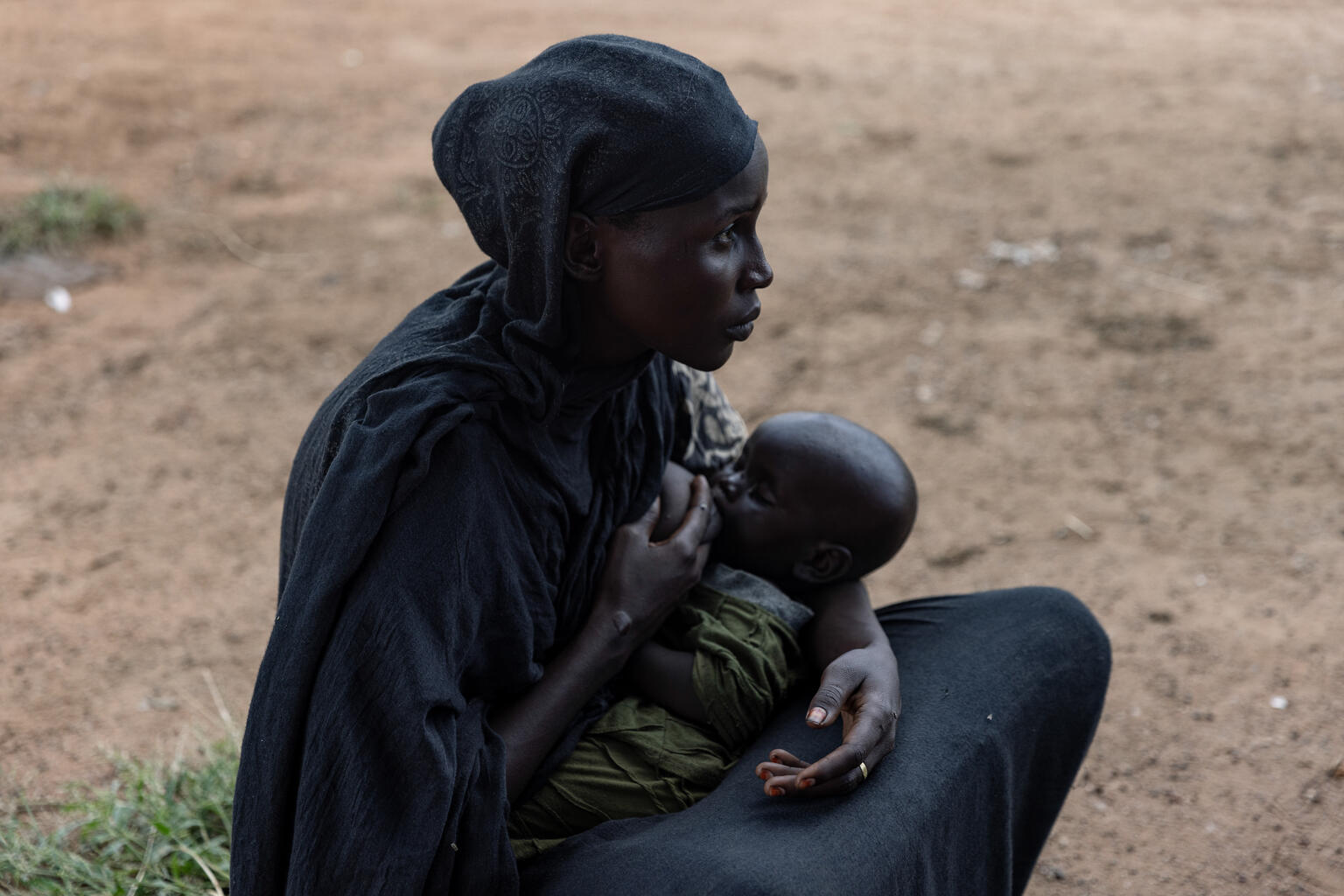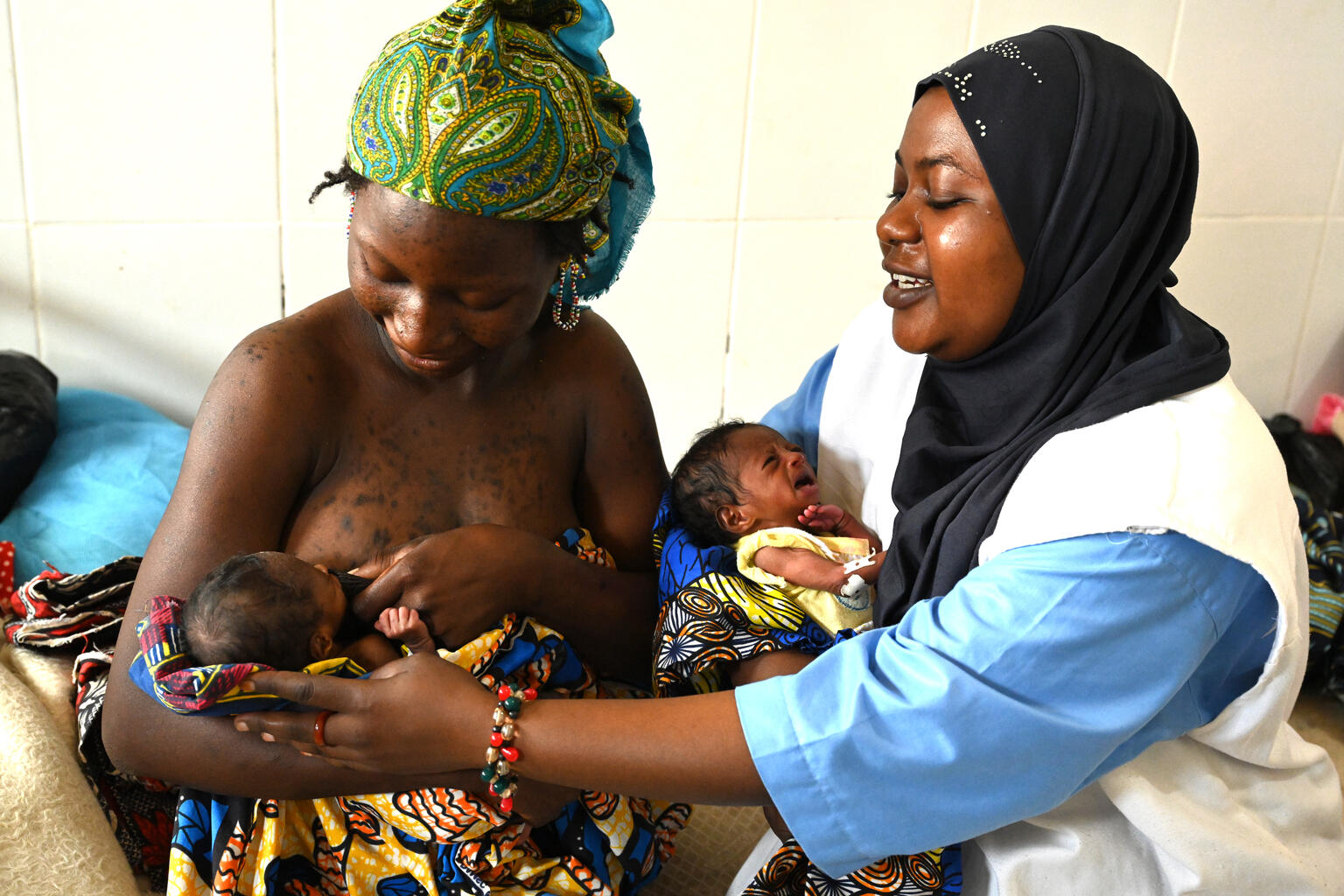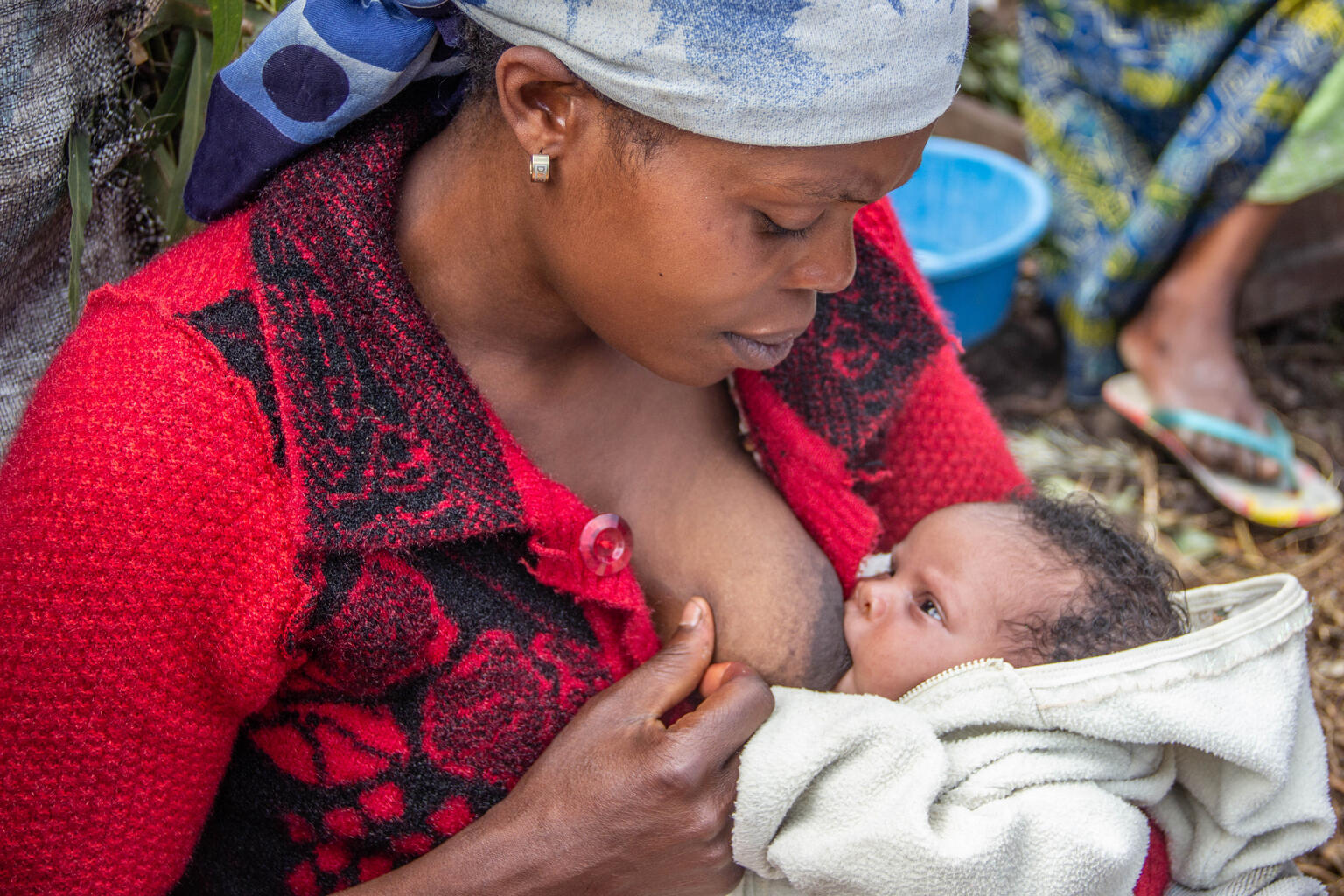Request support on coordination, information management, integration for nutrition outcomes or technical nutrition in emergencies assistance.
التماس الدعم لتنسيق التغذية وإدارة المعلومات والتغذية في حالات الطوارئ
Demander un appui pour la coordination de la nutrition, la gestion de l'information et la nutrition dans les situations d'urgence
Buscar apoyo para la coordinación de la nutrición, la gestión de la información y la nutrición en situaciones de emergencia
Solicite apoio para coordenação em nutrição, gestão de informação e nutrição em emergências

To mark World Breastfeeding Week, Brooke Bauer – the Global Nutrition Cluster’s Infant & Young Children Feeding in Emergencies (IYCF-E) Advisor – shares why breastfeeding is the single biggest lifesaving intervention for infants and young children and should always be encouraged – especially in emergencies.
Why is breastfeeding such an important intervention for infants and young children?
Optimal infant and young child feeding practices – including exclusive and extended breastfeeding – is the single most life-saving intervention for children under five globally. It simply is the safest and most nutritious, affordable and reliable source of food for infants under six months. That’s because breastmilk is always the right temperature, requires no preparation and is readily available even in settings with limited access to clean water and adequate hygiene. And it doesn’t stop at six months of age. Breastfeeding continues to offer all of these benefits up to the age of two years and beyond when solid food is introduced.
During emergencies, breastfeeding is even more important and life-saving. Conflicts, climate disasters and epidemics displace families from their homes and fuel food insecurity. At the same time, essential services and social systems are disrupted, families face forced separation, and access to clean water becomes limited.
In these settings, women and children become especially vulnerable and breastfeeding becomes a child’s means to food security. Breastfeeding effectively guarantees food for a child that is nutritious, accessible, appropriate, affordable and always ready. And breastfeeding also provides protection against malnutrition, disease and death for children – especially those under six months.
Despite all of its life-saving benefits, however, only 44 percent of infants under six months are exclusively breastfed worldwide. Yet, if we were to increase breastfeeding globally, we could prevent more than 820,000 child deaths each year – particularly those associated with diarrhea and pneumonia. There simply is no more cost-effective way to save children’s lives.
What are the baseline recommendations for breastfeeding?
The World Health Organization (WHO) and United Nations Children’s Fund (UNICEF) recommend that infants should start breastfeeding within one hour of birth and continue exclusively breastfeeding for the first six months of life. That means no supplementing with water, food, or breastmilk substitutes like formula, as they simply are not needed if a mother is exclusively breastfeeding. After the first six months, infants are encouraged to continue breastfeeding up to two years of age or beyond while also receiving age-appropriate, nutritious and hygienic complementary foods.

These are the recommendations we should be regularly promoting and adopting in our nutrition responses, especially during emergencies.
Why is it important to celebrate World Breastfeeding Week?
Breastfeeding is essential if we are to meet the Sustainable Development Goals, as it improves nutrition, provides food security and reduces inequality.
By celebrating World Breastfeeding Week, we can shed light on this important intervention as a shared responsibility of humanitarian actors to protect, promote and support breastfeeding across all levels of society. From government to frontline workers, it is our shared duty to understand the importance and life-saving effects of breastfeeding on not only the child and family, but the entire community itself.
What are some of the challenges that caregivers face when breastfeeding – particularly in emergency contexts?
Emergencies cause instability, which seriously threatens breastfeeding practices and children’s nutrition, health and survival. It’s important to continue promoting breastfeeding in emergencies while swiftly dispelling myths and addressing misconceptions.
For example, mothers, community members and those involved in relief efforts during emergencies commonly believe that trauma, stress and maternal malnutrition have negative effects on a mother’s breast milk production. However, even under stressful circumstances, a woman is still able to produce breast milk. Her body may just be slower to release the milk. Unfortunately, this slower release can cause the mother to lose confidence and look for other solutions out of fear that her child is undernourished.
A lack of privacy in shelters or camp settings may also make a mother uncomfortable breastfeeding her child and heighten her stress level. It is important that in these situations there is support available where a woman can have privacy, a calm environment and support to build confidence in her body’s ability to feed her child.

Time and the burden of additional household tasks are also heightened during emergencies and can undermine breastfeeding. When displaced, families often must travel long distances and queue in long lines for food, water and fuel rations. When mothers have to be away from their infants for long stretches of time in order to carry rations back to their communities, for example, this can complicate breastfeeding. On-demand and frequent feeding – which is necessary to optimally breastfeed a child – becomes very difficult and restricts the time the mothers can dedicate to appropriate breastfeeding and caring of their children.
Why is breastfeeding a safer, more effective intervention to promote in emergencies than breast milk substitutes (BMS), like infant formula?
Too often, well-meaning volunteers or other actors in an emergency response distribute infant formula and other breast milk substitutes (BMS) thinking they are helping. In reality, this is an incredibly dangerous practice and undermines optimal breastfeeding.
Infant formula use in refugee camps is dangerous because when the supply is unstable, families will dilute the milk to make it last longer. But by adding water to it, the infants don’t get enough nutrients.
Also, powdered milk – which is not sterile – needs to be heated properly to kill any bacteria in the formula. Just as we don’t eat raw chicken, we can’t drink formula without using boiled water that will kill bacteria in the formula itself. This is very dangerous for infants as their young, growing bodies are even more vulnerable to illness. And often in emergencies, families do not have the equipment or fuel needed to properly prepare infant formula.
Given the unique challenges and heightened risks, specific and extra efforts must be taken to ensure that breastfeeding is protected and promoted in emergencies.
How can we protect breastfeeding mothers in nutrition emergencies?
There are numerous examples that prove it is possible to protect, promote and support breastfeeding in emergencies. And as humanitarian professionals, we must make it the norm and abide by global health, nutrition and humanitarian standards.
All actors have a responsibility to support national policies and guidance that protect breastfeeding, prioritize breastfeeding in government and humanitarian responses and make it a part of emergency preparedness. By normalizing breastfeeding in emergencies, we can create an environment where mothers and infants are supported, even if they are displaced or living in an insecure environment.

It is also crucial that as nutrition practitioners we share accurate information with actors across all sectors about the life-saving value of breastfeeding and its importance in emergency settings.
We must also work collectively to strengthen the capacity of health and nutrition actors to be able to provide quality, holistic breastfeeding support and life-saving interventions to ensure that breastfeeding is protected. And we must highlight the dangers and risks associated with the use of infant formula and bottle use.
Humanitarian partners must be informed on how to monitor and report the distribution of infant formula or bottles appropriately to control these types of dangerous activities in an emergency. And these violations must be reported to the relevant authorities to ensure that breastfeeding mothers are not exploited for commercial interests – a sad, yet common practice by infant formula companies and others who can profit from emergencies.
Ultimately, breastfeeding is arguably the most sustainable, cost-effective and safest way we can support the health and nutrition of infants and young children affected by emergencies. We all need to do our part to protect and promote this life-saving practice more.
Do you have questions about or would like technical support in Infant & Young Child Feeding during Emergencies (IYCF-E)? Request support from our technical nutrition advisors.
